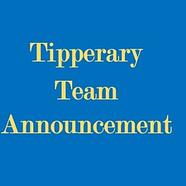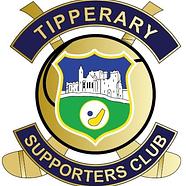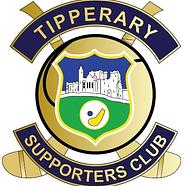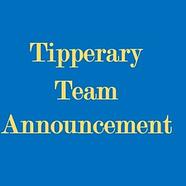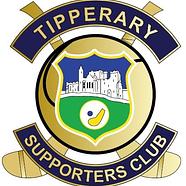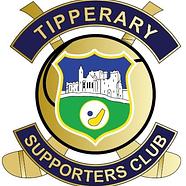Mick Burns, a key member of Tipperary’s finest ever hurling team, passed away this week on Wednesday evening.
Born in 1935, a native of Nenagh, he is long acknowledged as one of the game’s most accomplished defenders during the 1960s. The young man first rose to prominence in 1955 as a midfielder with the county’s All-Ireland champion minor side. He soon progressed to the senior panel and was a sub for 1958’s triumph.
Burns slotted into the right half back position when Jimmy Finn got injured in the following season’s Munster first round. Finn counted as an outstanding talent, leaving massive boots to fill, but his replacement proved up to the task. The Éire Óg Nenagh clubman served ten intercounty seasons, retiring after 1968’s All-Ireland final defeat to Wexford.
By then, Burns had become one of hurling’s most respected performers. He matched that minor title with five senior titles (1958, 1961-62, 1964-65), six NHL titles (1959-61, 1964-65, 1968), eight Munster titles (1958, 1960-62, 1964-65, 1967-68) and one Railway Cup (1963). During those years, he became almost ever present in the number 5 jersey.
“I only ever saw Mick hurl towards the end of his club career,” recalls Jimmy Minogue. “Since I was born in 1958, I missed his prime. But I nearly feel I did see Mick properly because I heard so much about him, growing up myself in Nenagh. He was a ‘pin-up hurler’ for that older generation, which passed down to us. The 1964-65 team was seen as a pinnacle of what Tipp hurling is meant to be about.
“Mick was constantly spoken about in the town. And you would see him about almost every day, working hard in his coal merchant business. He had a word for everybody but never wanted any attention for himself. Mick was a lovely reserved gentleman, maybe even a bit shy, but a great conversationalist when he knew and trusted someone.”
The current vice chairman of Tipperary County Board, Minogue emphasises his neighbour’s broader qualities: “He never went on about his Tipp days. Mick was actually a bit uncomfortable about being referred to in those terms. He liked to go about his business and his socialising in a quiet way. He was never a ‘things were far better in my day’ type of person.
“He was a fervent club supporter. I’d say there were very few matches Mick wasn’t at, whatever the grade. He built his house only a puck of a ball from our hurling field. I know for a fact that having his son Rónan involved when we won senior in Tipp in 1995 meant everything to him. I would say it meant five All Irelands to Mick.”
Michael Cleary is both another Nenagh native and another All Ireland winner with Tipperary in 1989 and 1991. “I grew up seeing Mick around the town, delivering coal and briquettes,” Cleary reflects. “I can still see the Ford Transit van he had, the one with the low back. He was as much part of Nenagh life as the sky above us. We are sad to see him go, of course. But Mick achieved so much in every way.”
For this hurler, the sense of an inheritance was important: “When Tipperary won against Antrim in ’89, we had some fantastic moments. Just the whole Nenagh thing being carried on, us carrying it on. The [Liam] MacCarthy Cup came to the town not long after. There were three Nenagh [Éire Óg] players on that panel, Conor O’Donovan, John Heffernan and myself.
“You had photographs taken of us three with Mick and the MacCarthy Cup. Any place is lucky to be able to hang up that kind of a photo on a wall. The link back to the fantastic Tipperary teams of the 1960s was brilliant for us, no doubt about it. That link made the whole experience, really.”
Cleary is grateful to have had Mick Burns’ company as the years moved on: “Mick was a man of few words, but I did get to know him in personal terms. We played the odd round of golf together. It wasn’t that he’d be saying you are an amazing fellow or a smashing hurler or anything else. You just had the sense of him having that bit of respect and time for you.
“Mick was always the politest anyone could be, but to be honest it wasn’t everyone he wanted to talk hurling with. And you didn’t have to be a former hurler or anything. Mick didn’t judge things that way. But if he felt someone had a genuine appreciation for hurling, he would talk hurling all night with that someone, and that person was lucky out.” Len Gaynor, a Kilruane MacDonaghs clubman, hurled alongside Mick Burns during the 1960s. He laughs quietly at a little irony, one that kickstarted his own career: “I was a sub for the Tipperary team that won the ’64 All Ireland. Never came on the field. Then my first day with Tipp arrived a couple of weeks afterwards, in the Oireachtas Final. I had been named as a sub, but Mick was sick on the day and couldn’t travel, and I was put in for him at right half back.
“I was never going to keep him off in that position. Mick was too good. So I ended up going over to the other wing, to left half back, and we hurled away together for four years. Mick went after 1968, having put in a marvelous stint. I don’t mind saying he was an example to me.” What were his specific gifts? Gaynor turns emphatic: “He was an out and out hurler, hard and close but never dirty. Stylish out and incredibly fast. Mick had perfect stickwork, either side. A great man to send over a long-range free, at a time when the ball made those frees a lot more difficult than with the later ball.
“Mick would have stood out in any era, including the current one. He had this brilliant positional sense, knowing the whole time what was going on around him. And the forwards used love the way he would deliver them the ball, putting it right out in front of them.”
Gaynor summarises that era: “Everyone says that team was one of the best Tipperary ever had, and Mick Burns was on it by full merit. No one questioned even for a second his place on it. We had an awful lot of tremendous lads on those teams, and even in the subs, but I don’t think we had anyone you could say was clearly better than Mick. He was so consistent.”
Jimmy Minogue remains grateful to have shared a home place and a club: “Mick was as Nenagh as they come. Lived the whole of his life in the town. Family life, business life, hurling life. It is always a great achievement to become a Tipperary hurler, but he became a Tipperary hurler when doing so was maybe at its hardest, because Tipp had so many to draw on.
“And Mick was ours, which will never be forgotten around here.”


